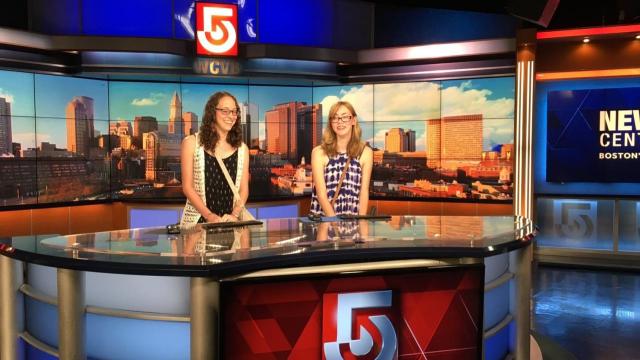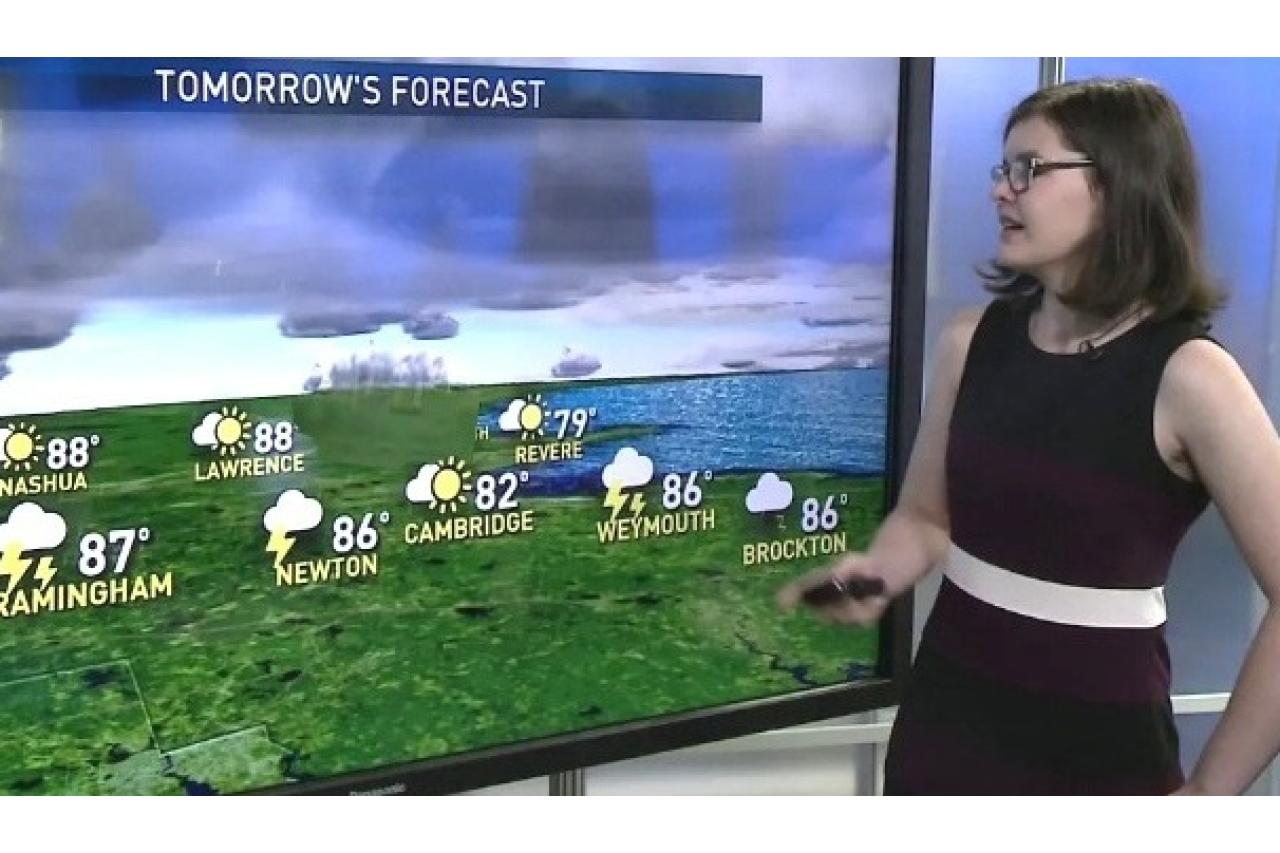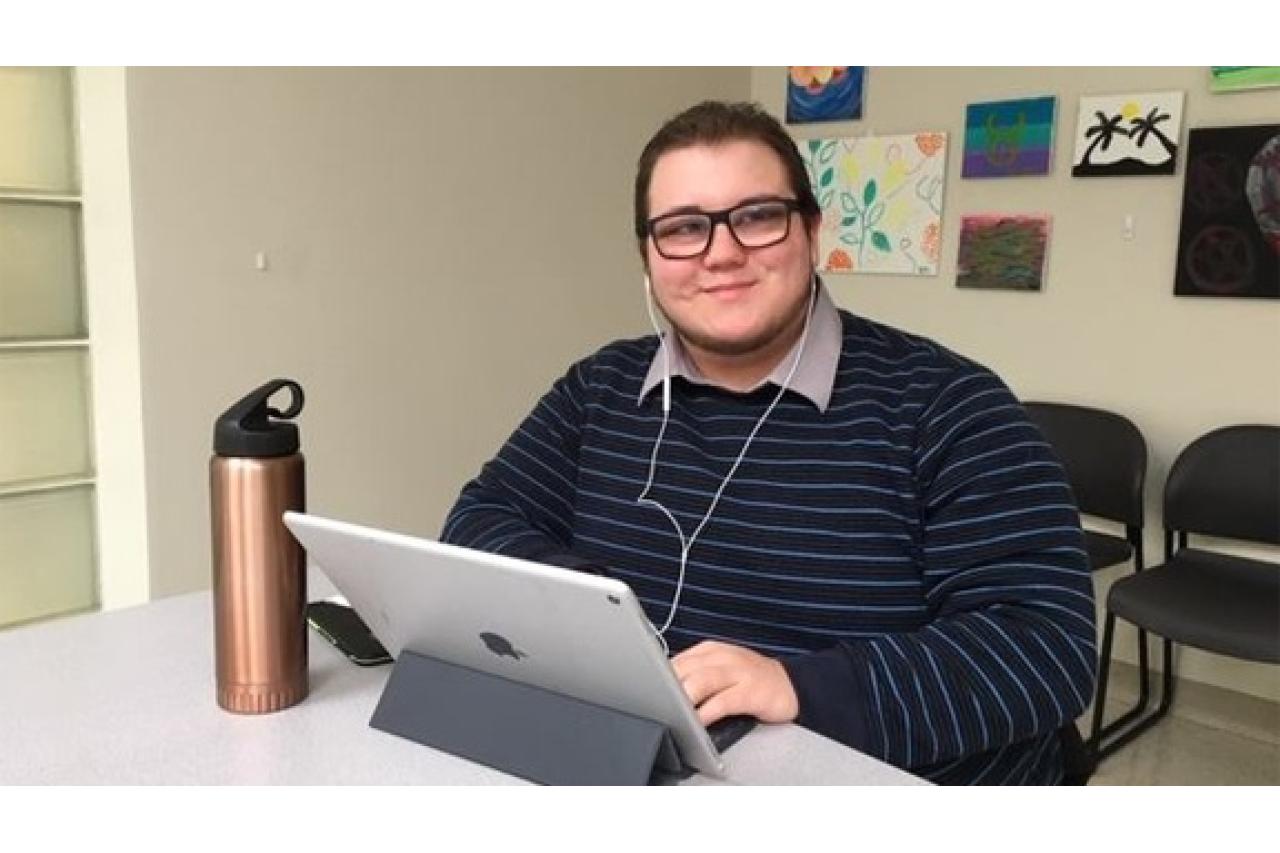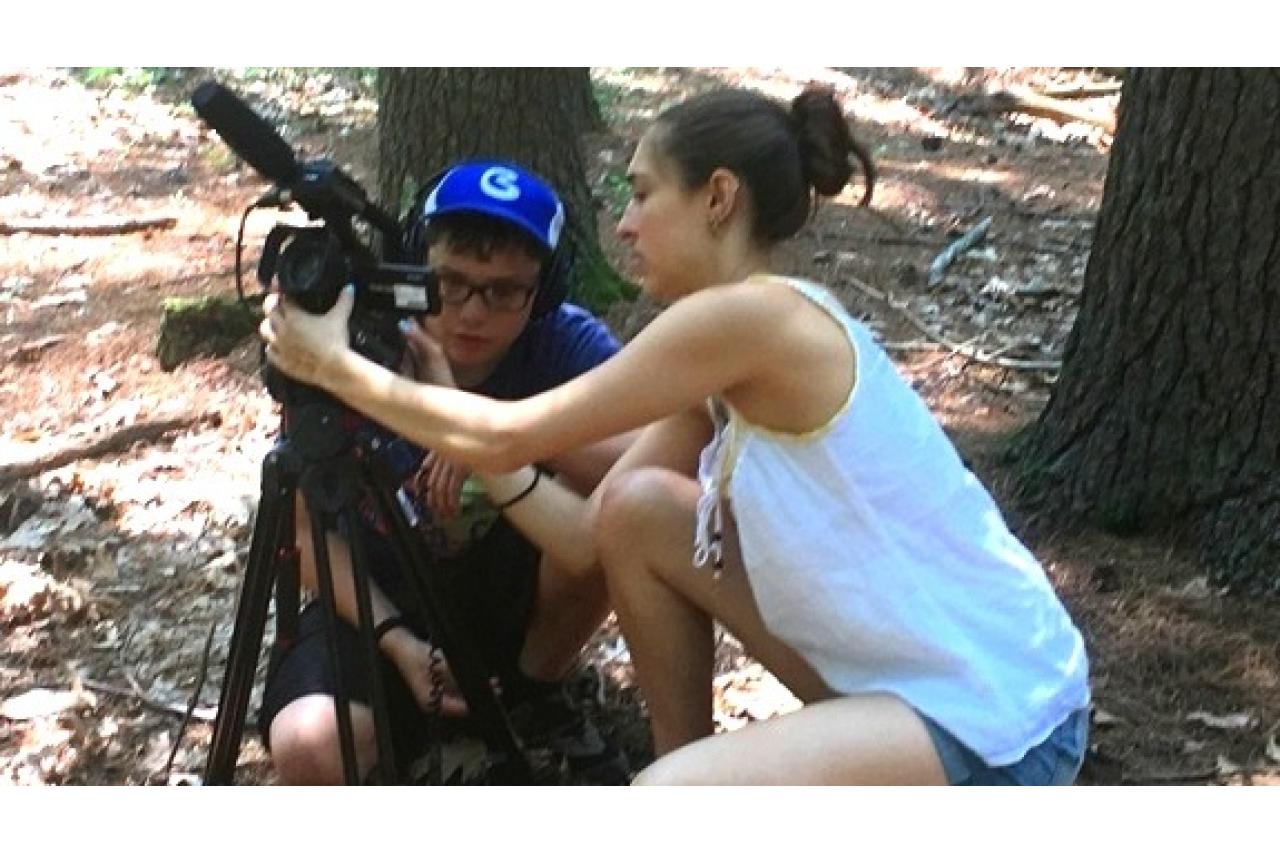
Students had the chance to tour TV stations in Boston and western MA, and those with continued interest in film-making did internships. One young man worked at a local cable access TV station and worked with another student to produce a historical documentary. The two sisters shown above worked with a videographer all summer to write, produce, and perform in a film about Louisa May Alcott.
Helping students “Envision Success”
Over the last few years, the Polus Center for Social & Economic Development has focused its efforts in Massachusetts on helping people with disabilities find meaningful work that matches their skills, interests, values, and aspirations. With support from the MA Commission for the Blind, the Envision Success Project (ESP) was launched in 2017 for legally blind youth age 14-22. This after-school and summer career exploration program gives high school and college students the opportunity to explore their career options, not by reading a book or hearing a speaker in the classroom but by actively touring businesses and workplaces, asking questions of people doing the work that interests them, and experiencing the work environment and job responsibilities of people in a wide range of occupations.
Tours have included visits with attorneys, police officers, accountants, TV news anchors, photographers, and physicians, as well as to the State House to visit legislators, to colleges to meet with students who are blind and to learn about Disability Offices, to banks, to a manufacturing facility, to a graphic art studio, and to museums. Some events focus on topics of particular interest to people with a visual impairment, such as a visit to the Worcester Public Talking Book library, or learning about guide dogs. Last year students attended a theater production with audio descriptions and enjoyed a tour before the performance to touch and feel the props on the stage. But most tours and discussions don’t focus on vision at all, just expose students to the myriad of career paths available for them to follow.
Participants in ESP also hear from guest speakers and receive workplace training and coaching, including public speaking classes by the Lau Lapides company, a boutique-coaching studio that helps students to build confidence, communication, and leadership skills; workshops by Ken Kerber on Emotional Intelligence; and classes using the Skills to Pay the Bills curriculum. They have the chance to do career assessments such as the Strong Interest Inventory that further expand their thinking about a career path based on each person’s unique set of interests, talents, and work values. They hear from successful “visually impaired persons” (VIPs) such as attorney Liz Myska, Executive Director Cheryl Cummings, MCB Supervisor Joe Buizon and Polus Center Job Coach Will McNamara, who is gearing up to finish his 11th Boston Marathon.
During the summer students have opportunities to work at paid internships to gain skills and experience in career fields they are contemplating, sometimes confirming that’s the path they want to follow and sometimes realizing that wasn’t for them so they look in another direction. Internships have included working in a professional office and in a photography studio, baking pizzas at Holy Cross College, learning customer service in comic book and video game stores, working on a business website, and providing counseling services for younger at-risk students at a health care facility. A young man interested in politics hopes to intern with Congressman McGovern’s office while a budding meteorologist attended weather camp, working alongside well-known forecasters and ending up with a video of her predicting the weather. A co-worker of one of the interns was so impressed with his skills that she recently nominated him for a local “Forty Under 40” award.
After touring Fruitlands Museum, two sisters worked with a professional videographer to produce a short film about Louisa May Alcott, learning all aspects of film making including camera work, writing and performing. They sang their original song publically at a movie theater event and later toured the Louisa May Alcott museum. Their film production experience led them to also create innovative commercial videos for a label-reading product for people who are blind. Another young man also interested in film interns at a local cable access station, while another interested in history and photography works at the historical society and takes photos of all of their public events. The two of them also produced a film about historical figures from Framingham’s past.
ESP helps young people discover the breadth of options open to them. In the process, we are also able to dispel myths that business owners might have about “what a blind person can do,” and they are often amazed at the assistive technology available, most as simple as a smartphone app.
ESP is one of many innovative programs offered by the Polus Center that helps people with disabilities to find meaningful work. Other employment projects include Project SEARCH, Now Envision Work and the Employment Now Initiative, internship and job placement programs for adults who are legally blind in Boston, sponsored by MA Eye and Ear, the MA Commission for the Blind, the Boston Foundation and the Partners for Sight Foundation. Last year we worked with the MA Hire North Central Workforce Board on the Disabilities Employment Initiative (DEI), a career pathways project that helped people with disabilities access services at local career centers. We were just awarded a grant from the Commonwealth Corporation to work with the MA Hire Career Center and MA Rehabilitation Commission (MRC) to offer a CVS Pharmacy Technician training and job placement program for young adults with disabilities.
For most of us, work is an important part of our identity, giving our lives meaning, giving us a sense of contribution, financial stability, relationships and the ability to have a home and provide for ourselves and for our families. The quest for the “good things in life” does not preclude people who happen to have a disability. The Polus Center applies career-planning theories employed by corporate and private career coaches to help participants in our programs discover their talents and follow career paths that make sense for them. Using person-centered principles and following an approach described by author Dale Dileo as “plan, match, support,” we strive to help people match their skills, interests and work aspirations with critical job openings that lead to long-term career opportunities. It’s not just about finding a job, any job, or especially a stereotypical job. It’s about learning who you are and discovering work that will provide a lifelong career path filled with satisfaction and reward. We look forward to following the success of the students we’ve met through ESP and just maybe helped steer in the right direction.
We are always looking for volunteers to join us on tours! Contact Jen Duval, jduval [at] poluscenter.org for more information. You can also follow our ESP Facebook page.





